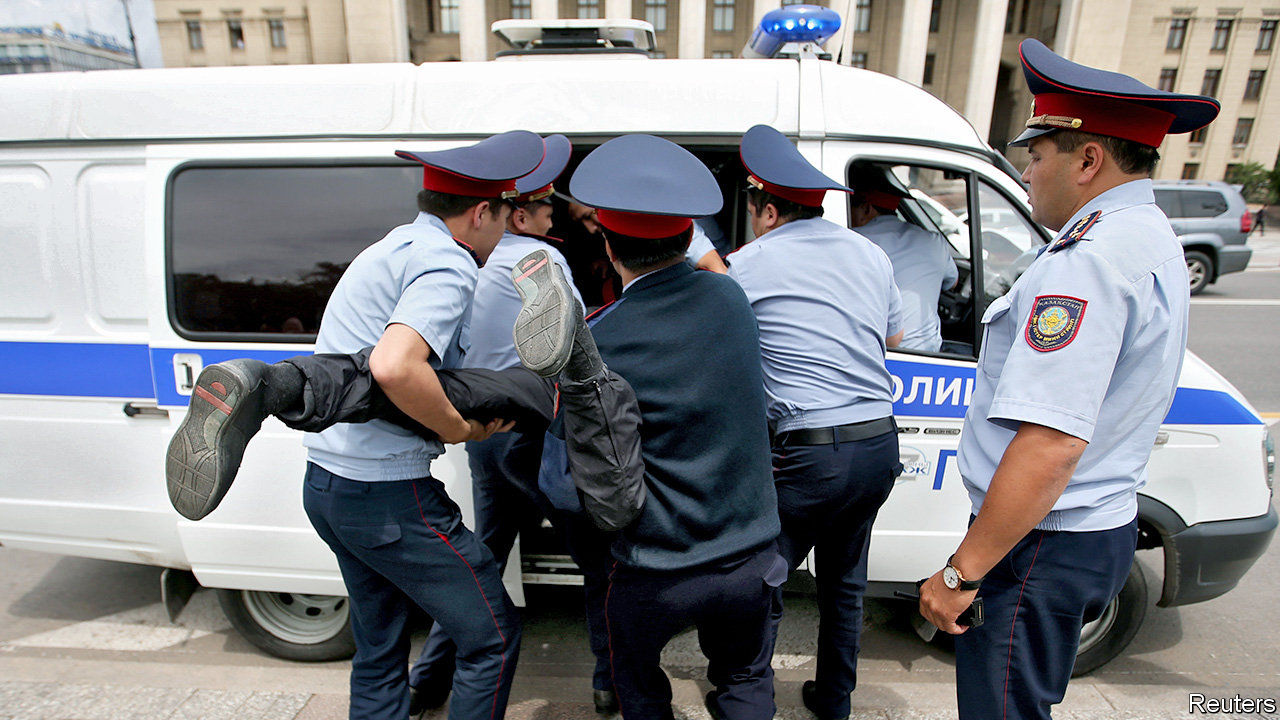An autocrat tries something new for central Asia—organising a transition in his lifetimeAsia
ALMATY
“HAPPY HOLIDAY!” a pie seller in Kazakh national dress told voters leaving a polling station in Almaty, Kazakhstan’s financial capital. A short stroll away in a leafy park, police were ruining the festive mood. Masked security forces carried away prostrate protesters and hurled them into police vans. They were breaking up a peaceful demonstration by a few hundred dissenters who had gathered to demand change, even as the man who was certain to be elected president promised them continuity.
Kassym-Jomart Tokayev won a landslide in the election, which was called following the recent resignation of Nursultan Nazarbayev, the iron-fisted leader who had ruled for three decades. Kazakhstan has never held a vote deemed free and fair by credible international observers. This time monitors from the Organisation for Security and Co-operation in Europe (OSCE) noted that the election showed “scant respect for democratic standards”. Despite the presence this time of a candidate critical of the regime, the current election seems only cosmetically different. Mr Tokayev stormed in with 71% of the vote, admittedly far below Mr Nazarbayev’s last triumph, at 98%. Mr Tokayev’s closest rival, Amirzhan Kosanov, trailed on 16%.






